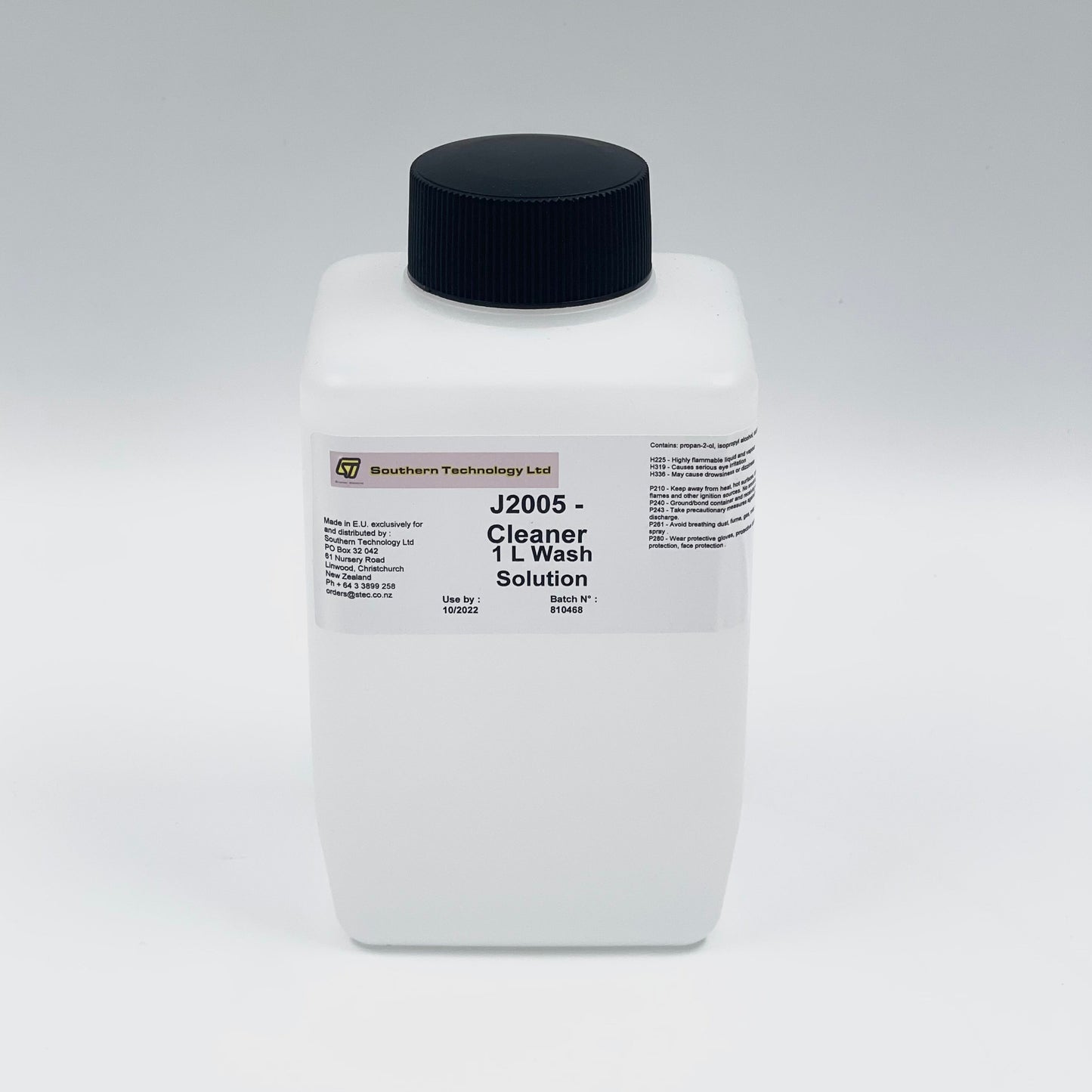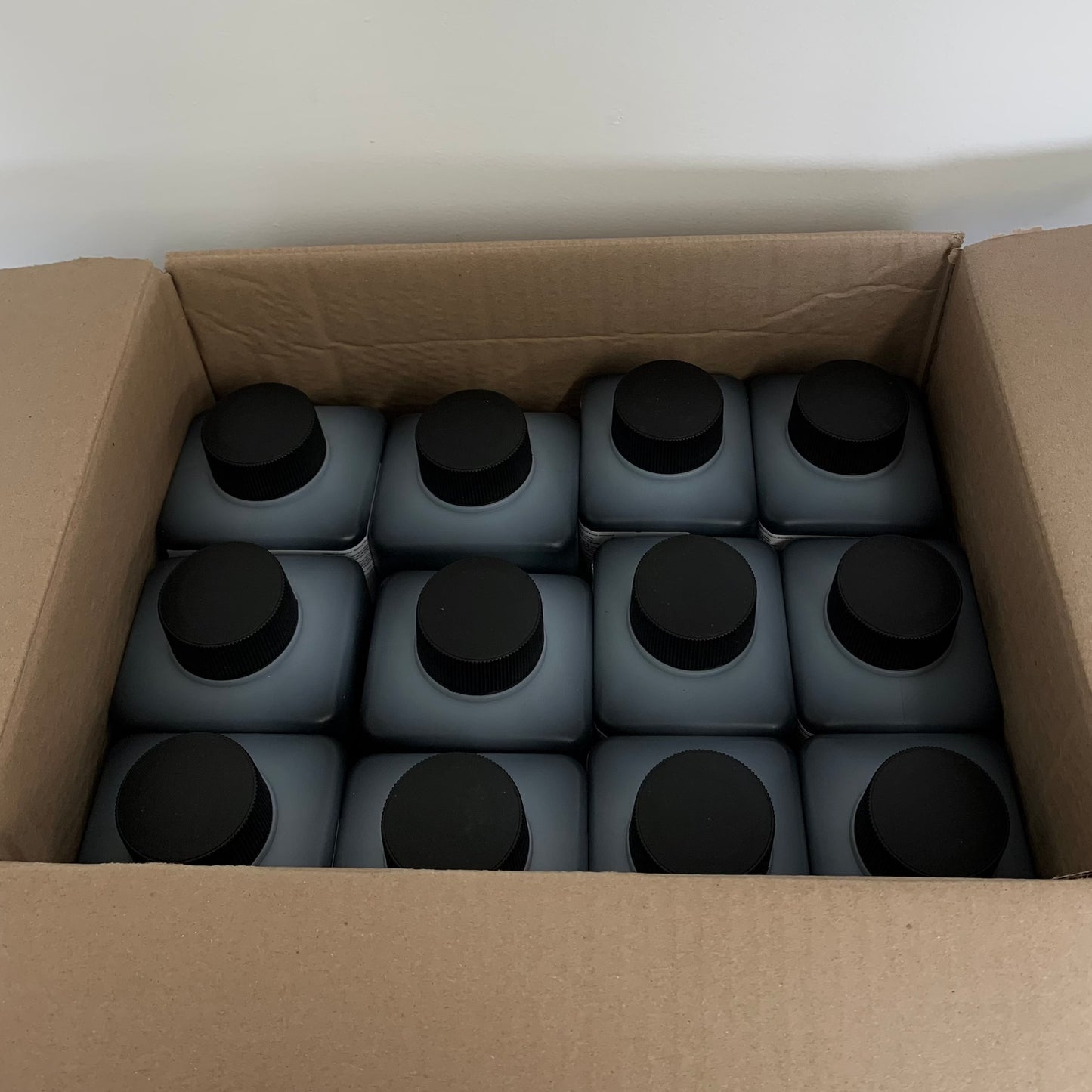DG Shed
J2005 Cleaner Wash Solution - ProIndustrial Inks and Solutions
J2005 Cleaner Wash Solution - ProIndustrial Inks and Solutions
Price (exc. GST) each
Couldn't load pickup availability
INDENT ORDER ONLY - LEAD TIME +30 DAYS
J2005 Cleaner Wash Solution
Printer Type: Matthews Dod Printer
Volume: 1L
WARNING DANGEROUS GOODS STATUS
Information On J2005 Cleaner Wash Soloution:
Solvents are vital components in the printing industry, playing a crucial role in ink formulation, cleaning, and maintenance of printing equipment. These solvents are carefully selected based on their ability to dissolve ink components, adjust ink viscosity, and facilitate proper ink application onto substrates. Additionally, solvents are utilized in cleaning processes to remove ink residues from printing presses and equipment.
Key Features:
-
Ink Formulation: Solvents are essential ingredients in ink formulations, helping to dissolve pigments, resins, and other additives to create a homogeneous ink mixture. The choice of solvent influences ink properties such as drying time, adhesion, and color intensity.
-
Viscosity Adjustment: Solvents are used to adjust the viscosity of printing inks, ensuring optimal flow and coverage during the printing process. By controlling viscosity, printers can achieve desired print quality and consistency across different substrates.
-
Drying Characteristics: Solvents influence the drying characteristics of printing inks, affecting factors such as drying speed, film formation, and resistance to smudging or abrasion. Proper solvent selection is critical to achieving fast drying times without compromising print quality.
-
Cleaning and Maintenance: Solvents are employed in cleaning processes to remove ink residues from printing equipment, such as rollers, plates, and printing presses. Effective cleaning solvents help prevent ink buildup and maintain the performance and longevity of printing machinery.
-
Compatibility: Solvents must be compatible with both the ink formulation and the printing substrate to ensure proper ink adhesion and drying. Printers must consider factors such as substrate porosity, surface tension, and drying conditions when selecting solvents for a specific printing application.
Applications:
-
Offset Printing: Solvents are used in offset printing processes to formulate inks suitable for various substrates such as paper, cardboard, and plastics. Solvent-based inks offer excellent color vibrancy, adhesion, and drying characteristics, making them ideal for high-speed commercial printing.
-
Flexographic Printing: In flexographic printing, solvents are utilized in the formulation of water-based, solvent-based, or UV-curable inks. Solvent-based inks are preferred for their fast drying times and compatibility with a wide range of substrates, making them suitable for flexible packaging, labels, and corrugated board printing.
-
Gravure Printing: Solvents play a crucial role in gravure printing, where they are used to formulate inks with the desired viscosity, drying speed, and color intensity for printing on substrates such as film, foil, and laminates. Solvent-based gravure inks offer excellent print quality and durability, making them popular for high-end packaging and decorative applications.
-
Screen Printing: Solvents are essential in screen printing to prepare ink formulations that adhere well to substrates and dry quickly during the printing process. Solvent-based screen printing inks are commonly used for outdoor signage, textiles, and industrial applications due to their durability and weather resistance.
Material Saftey Datasheet:
10 in stock
Share





